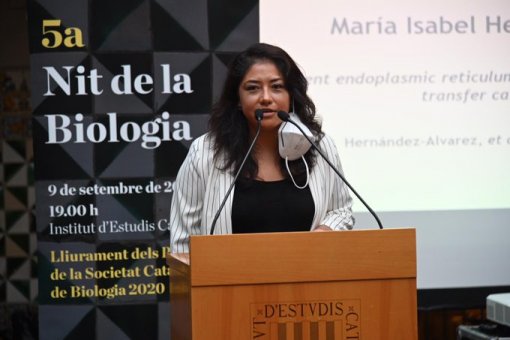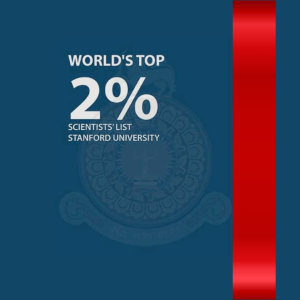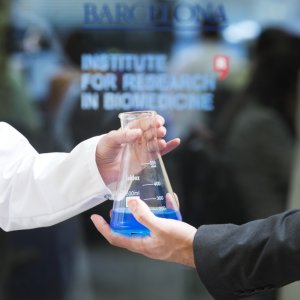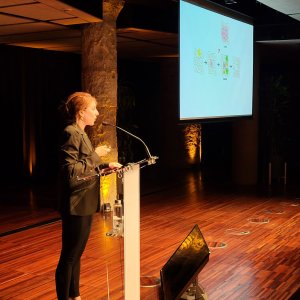The Catalan Society of Biology (BSC) has awarded IRB Barcelona alumni Maribel Hernández for the best scientific article of 2019, published in the scientific journal Cell in May 2019. The work, entitled “Deficient Endoplasmic Reticulum-Mitochondrial phosphatidylserine Transfer Causes Liver Disease", was headed by scientist Antonio Zorzano, head of the Complex Metabolic Diseases and Mitochondria laboratory. This article proposes a possible therapeutic target to treat fatty liver, a disease for which there is currently no treatment.
Maribel currently is a Ramón y Cajal Researcher at the University of Barcelona (UB). She tells us her feelings about having received this great recognition.
How do you feel about having received this award?
I'm so excited! Because we have competed with excellent work, and ours has been selected! Being part of the finalist works was already a reason for satisfaction, so being the winner was a total joy. On the other hand, it is a very important boost in my time as a principal investigator that now begins at the UB as a Ramon y Cajal Researcher.
Could you explain briefly what the awarded article consists of?
The article we are presenting describes for the first time how a phospholipid deficiency can trigger insulin resistance, glucose intolerance, fatty liver disease, inflammation and liver cancer.
We are proud to present this groundbreaking work showing results that strongly support the conclusion that the mitochondrial protein Mitofusin 2 (Mfn2) is central to the development of nonalcoholic steatohepatitis (NASH) and shows a role Unexpected transfer of phosphatidylserine (PS) phospholipid between the endoplasmic reticulum (ER) and mitochondria.
We are convinced that this work will open avenues of research in multiple laboratories and will change the way we understand the function of Mfn2 and NASH.
Read more about the award here.




